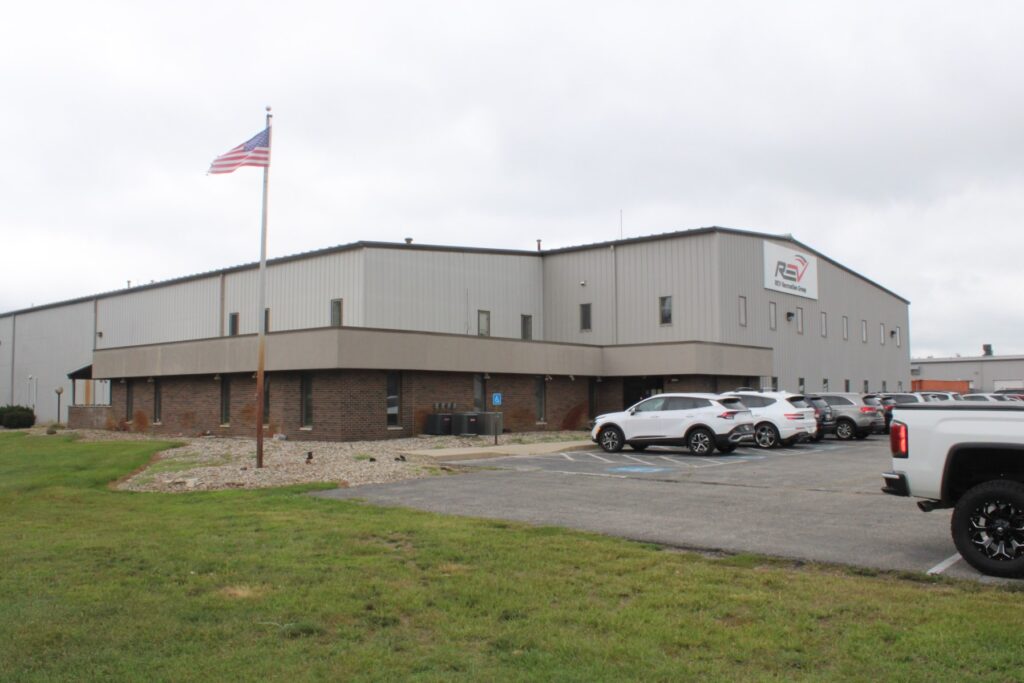After almost 10 years in the Class B market, Midwest Automotive Designs is banking on a plant expansion, a foreign trade zone and an emphasis on employee training to take it into another successful decade.
The Elkhart, Indiana, upfitter has been building luxury vans based on the ubiquitous Mercedes-Benz Sprinter since its North American introduction in 2001, making Midwest one of the first companies to modify the vehicle. In 2014, Midwest introduced its first Sprinter-based RV, dubbed the Weekender, and today, its wide range of highline Class Bs – sold through 50 dealers in the United States – accounts for about half of the company’s business.
With ex
“There was a building that became available which is linked to our present property and it’s 75,000 square feet. It increases the size of our campus and we’re not traveling or going down the road. It’s literally on-site,” he says. “We were really limited on our production capabilities within the buildings we have and this allows us to have an enormous amount of growth potential over the next couple of years.”
Midwest’s use of cells, a lean manufacturing component that groups work stations and machines together to produce a finished product, suits the low-volume upfitter perfectly because the plant only produces about 40 vans weekly. Stout says adding more cells in the new building means higher production. It’s a necessary approach as Midwest vans contain so many custom-made components, most made on-site, and using a typical assembly line would be inefficient.
“We were on such a growth pace that we were constantly trying to build more, hire more people, but getting involved with lean has really made us pay attention a lot more to the details,” he says.
Embracing New Technologies
Once under new ownership, Midwest began investing heavily in CNC (computer numerical control) technology.
“We’ve put probably close to $750,000 into machinery like CNCs just in the last couple of years. We have CNCs that rout wood, we have CNCs that cut vinyl and we also have CNCs that quilt, so they sew onto vinyl,” Stout says. “As we’re investing into our future, we’re investing into improving the efficiencies we can get, but also the longevity of the company and the growth that we can get out of it.”
Equally important was the formation of a foreign trade zone to enable the direct importation of German-built S
“When they built the factory, it was designed for an output of 40,000 units,” says Jake Stephenson, director of sales.
“The demand in this country was for more than that, and so for each of the last three years, they’ve always allocated how many you’d get, but as the year went on, that number kept changing and getting cut.
“We were never able to get a consistent flow of chassis to the number that we were asking for, and so we went through a fairly lengthy process of setting up a foreign trade zone here and getting approval from Mercedes-Benz in Germany to buy chassis from them direct to ship over. This May we started receiving our first chassis from Germany. We still buy from both locations, but having that dual source definitely helps.”
Employee Retention & Training
The third focal point Midwest concentrated on during 2023 has been keeping its 300 employees aboard, according to Stout, and not losing them for what may seem like greener pastures at the numerous competing facilities in the region.
“It’s the retention that we’ve really focused on because there is a tremendous amount of money and time spent on training new employees. If you don’t engage with them, and then they leave to go somewhere else, you’ve got to start all over. Our biggest thing was focusing a lot more on the education and the process controls for each job so that it’s well understood,” Stout says. “I think that by engaging with the employee to let them know exactly how to do their job correctly, giving them everything they need to achieve that, we’ve gotten them a lot more engaged with liking to work for Midwest and not wanting
to leave.”
Being an hourly shop makes a difference, Stephenson says, and it’s working; more than a third of Midwest’s employees have been with the company more than 10 years.
“We’re expecting quality work, not a guy out there running around just doing it as fast as he can. A lot of good workers would prefer to work in that type of system than in a rate shop where it’s just slammed together as fast as possible. They’d rather be proud of what they’ve done at the end of the day,”
he says.
With the advent of CNC, tasks that took employees longer to do are done more quickly and with few errors, but Stout says training is still key.
“It’s definitely more of a skill set. You can be an operator and push a button and the CNC goes, but you also have to be really educated on the performance of the machine so when it’s having a problem, you have to figure out the problem and adjust to it, as well as making sure you’re getting the most potential out of it,”
he says.
“We are getting more highly skilled positions because of things like that and being engaged with understanding how to use equipment, along with other training in electrical and plumbing.”
Midwest also will be rolling out certified welder training, another initiative moving throughout REV Group companies. Ultimately, the idea is to keep employees moving along a career path at Midwest.
“What we try to do, along with HR, is get real engagement with the employees to understand and show them the pathway. Everyone wants to make more money, but we need to do it by job task and education and cross training,” he says.
